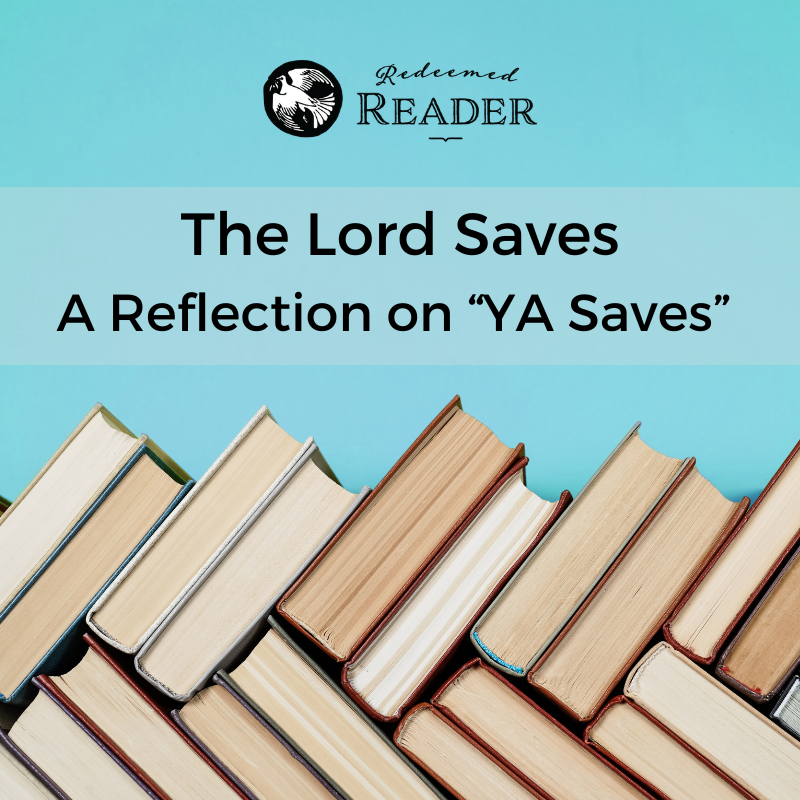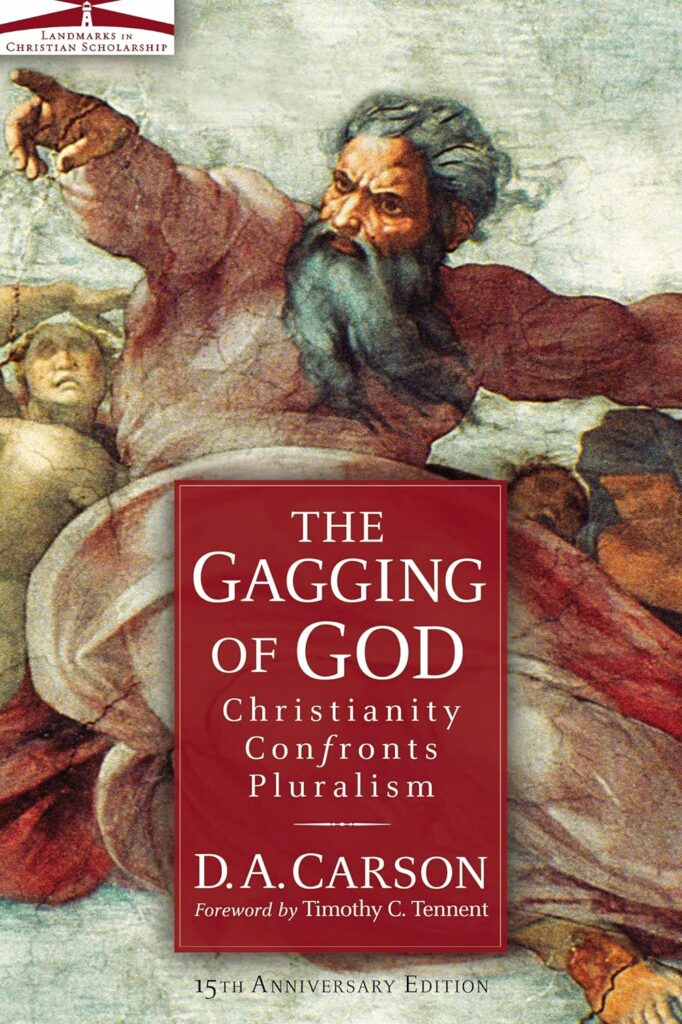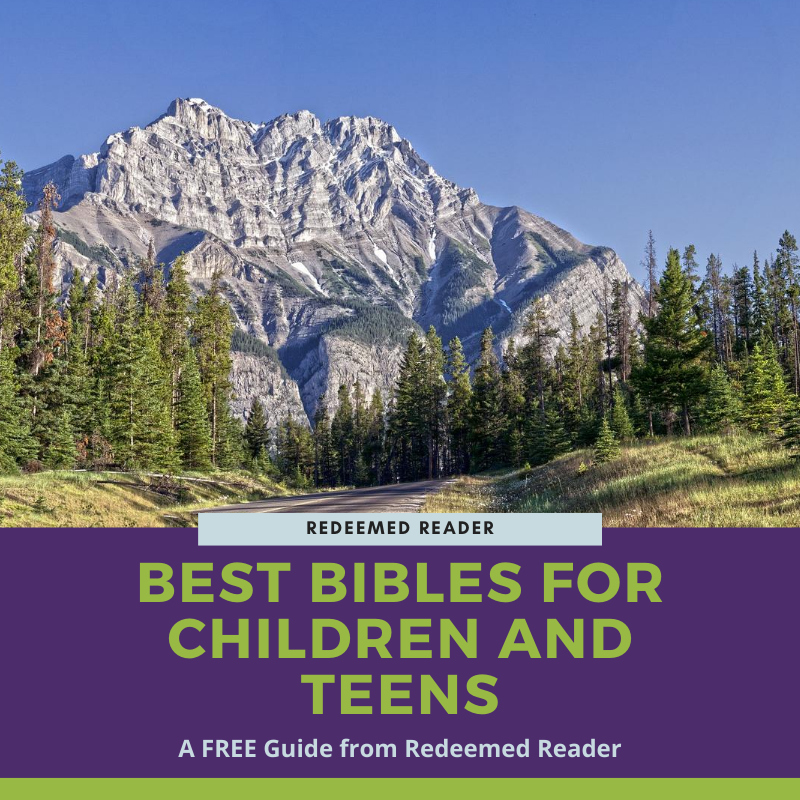The Lord Saves: A Reflection on “YA Saves”
Francis Schaeffer’s Insight
Francis Schaeffer once wrote that in his generation, serious art required someone standing on a mountaintop, ripping out his entrails. I wish I could remember in which book of his I read the quote. (I’ll give an invisible cupcake to anyone who can remember!) But the image has stuck with me because it seemed an apt description of most of what I read in high school and college.
Whether YA literature has gotten darker over the years is a pretty silly question, really. Anyone who’s compared Dick and Jane stories with Walter the Farting Dog, or compared Ozzie and Harriet with Sex in the City, or Mozart with Nirvana can surely see the arc of distortion and boundary pushing. Young Adult literature is just a small subset of that cultural transmutation.
The thing Francis Schaeffer helped me see in his book The God Who Is There was that all that boundary-pushing and entrail-ripping wasn’t random. It had a reason. In short, artists and storytellers were looking for God, and in His seeming absence, we invented our own saviors and sacrifices.


“YA Saves”
Enter “YA Saves.” Shortly after Meghan Cox Gurdon’s piece, “Darkness Too Visible,” appeared in the WSJ, YA author and activist Maureen Johnson started the Twitter hashtag, #YAsaves. She claimed in her piece in The Guardian in June of this year that “within hours, there were over 15,000 responses. The topic became one of the worldwide trends.” Authors, librarians, editors, and YA fans from across the nation chimed in to tell in 140 characters or less how Young Adult literature had saved them. But it wasn’t just Twitter. YA Saves echoed through the blogosphere as well, and here are a few insightful testimonials:
- Author Cheryl Rainfield wrote on her own blog, “So many people joined in that yesterday #YAsaves became the #3 trending topic in the US. I found the discussion and raising of voices incredible heartening. It moved me from hurt and my own triggers around what was said about Scars (my abusers used to frequently criticize me and threaten me to be silent) to feeling empowered, and reminded me that I’m part of a huge, vibrant, passionate community of book lovers.”
- One blog reader named Keri responded this way, “…novels that address such things are so good because they show people that they don’t have to be alone and that they are in no way less qualifying of love or in any way degraded as human beings just because of what has happened to them. Thank you so much for sharing this. ? ”
- And on another blog, one woman wrote, “I lived through a childhood with a mother who did her parenting from the bottom of a Jim Beam bottle. The only thing that got me through it were books. And at that time, YA books were few and far between. I read whatever I could to escape, whether it was a Fabio-adorned historic romance or a horror novel by the King formerly known as Steven. And then I read Flowers in the Attic, a novel chock full of incest and abuse and murder and every taboo subject known to man. It was the closest thing I had to a modern-day YA novel and I was smitten. I devoured any V.C. Andrews book I could find, even after her death. And what I took from those books was not the glorification of sex or drugs, but instead, a message of hope. The protagonists in those novels either came from horrific situations or were thrust into them involuntarily, suffering unspeakable abuse at the hands of family members or trusted friends. What I drew from these characters was a sense of strength, a sense of courage. I learned that what my mother did was not my fault. That I would grow up to be different than her. I learned that no matter what we suffer through, that we can always overcome our pasts.”
- Perhaps most succinctly, Natasha wrote on her blog, “The authors don’t spill their blood for nothing, but they help heal our wounds and strengthen our hearts. They are our voices when we can no longer speak. They aren’t just weapons, but our angels.”
These are heartfelt claims. But simply because YA books do help some people doesn’t mean they don’t do harm in other instances. Alan Jacobs wrote a piece on the topic for The New Atlantis shortly afterward, and he summed up the YA Saves argument like this: “Salvific power, no danger. Even penicillin is dangerous for some people, but not YA fiction!”
Banned Books Week and Current YA
While Banned Books Week may seem to be a political issue, it has certainly moved into the realm of religion for many. If you need proof that this really isn’t about government repression, take what happened at Bitch Magazine back in February as a for instance. The avowedly feminist magazine published a list of 100 Feminist Books for the YA Reader, which was well-received and on its way to becoming a staple for many library wish-lists. But the editors received several complaints from rape victims who said the books could serve as “triggers” for rape victims to relive their painful experiences. On that basis, three books were removed from the list, including Tender Morsels. The reaction from readers and authors was swift and severe. Maureen Johnson, who led the afore-mentioned attack on Gurdon, also threw fuel on this fire, comparing the magazine’s editors to book banners: “I was absolutely delighted to see my book, The Bermudez Triangle, on this list when it was published. I’m a fan of the magazine. But I have been incredibly disheartened to see your process for removing books. It mirrors EXACTLY the process by which book banners remove books from schools and libraries—namely, one person makes a comment, no one actually checks, book gets yanked.” Another YA author, Scott Westerfield, responded, “Maureen, you have pegged exactly why this hasty redaction has me so annoyed. It’s just like watching a school library yank a book (though admittedly more honorable, because more open). And Kelsey’s language about not *judging* the books, merely finding them inappropriate for this particular library, also sounds awfully familiar.” (See these comments and more for yourself here.)
The Gagging of God


Which brings me to The Gagging of God. D. A. Carson wrote the book in the 1980s, and in it he described “cherished pluralism” as the greatest threat to Christianity today and possibly since the Gnostic heresy of the second century. In this post, I couldn’t possibly go into all the details of it he does. But as a summary on p. 18, he quotes Lesslie Newbigin as defining it this way, “It has become commonplace to say that we live in a pluralist society—not merely a society which is in fact plural in the variety of cultures, religions, and lifestyles which it embraces, but pluralist in the sense that this plurality is celebrated as things to be approved and cherished.” I believe this is one motivation behind Banned Books Week, as well as the incident with Bitch Magazine. It’s not really about tolerance. It’s about the cherishing of a pluralistic idea of truth, as opposed to any idea of Truth with a capital T (i.e. exclusive truth). Need more proof? Lauren Myracle makes almost that exact point in her interview with Meghan Cox Gurdon.
Even though the caretakers of American book culture see this crawling out from under the weight of Truth as a huge relief, it has left a hole. And I would argue that a large segment of our society has turned to fiction and books to replace God. That’s the basic Christian definition of idolatry, by the way. Anything you put in the place of God in your life. We look to our authors to save us from a thousand secret sins, to lay their characters on the altar and sacrifice them in ways that will break our loneliness and hardness of heart, and bring us again into communion with each other. We are a culture looking for YA and other literature to save us.
YA Saves and Christians
And Christians aren’t immune from this seduction, either. Fiction authors often play the role of priest and priestess to readers in Christian books as well. Nancy Leigh DeMoss talked about The Shack in her radio program last year. One of the most moving things to me in listening both to her comments and the comments of those who responded to her was the refrain, “But Nancy, regardless of the content, The Shack made me feel for the first time that God really loved me.” God’s Word, His death on the cross wasn’t enough. They needed fiction to mediate between them and God.
Certainly, I would never want to deny the healing power of stories. Christ’s parables and Nathan’s story told to King David are proof enough that God approves of stories, and that they are a critical part of his plan for human experience. The problem is when storytelling or anything takes the place of God and His Word. When authors are perceived as having the authority and ability—by themselves—to deal with children who experience sexual abuse at the hands of their family members, or a child who is so mentally confused that she resorts to self-mutilation. I am put in mind of so-called Christian faith healers who line up elderly people and mothers with cancer and tell them that if they will just believe, they will be healed. Then they take their money and leave them just as sick and distorted as before, but now vaguely feeling hopeful that it will all be all right.
In his interview with Gurdon and Myracle, NPR interviewer Neal Conan asked, “Should there be a line?” In other words, should anything be off-limits to young readers? I would ask another question: when will books be dark enough? How much sin and perversion, how many corpses and flayed flesh in the books we read will be enough? At what point will authors be able to say, “Now you are forgiven. Now you cutters and homosexuals and obese women and anorexics and rapists and incest victims are all restored and forgiven.” And when will they be able to tell us, “Now you readers, now you have empathized enough. Now you may rest and find communion with your lost brothers and succor for your souls.”
Only The Lord Saves
St Augustine wrote, “I have read in Plato and Cicero sayings that are wise and beautiful; but I have never read in either of them, Come unto me all ye that labor and are heavy laden.” Christians unconsciously fill in the rest of the line: “and I will give you rest.” Only the Lord can give such rest. In the Letter to the Hebrews in the Bible, we are told that the Israelite sacrifices for sin and atonement were good and ordained by God, yet they were only types. Day after day, priests stood in the temple and offered their sacrifices of blood—bulls and goats and doves. Yet, they were only shadows of Christ, offered once and for all as a perfect sacrifice of sin. Sin meaning, all the painful effects of our estrangement from God; or as it’s phrased in a Coldplay song, “death and all his friends.” It is Jesus alone who can restore our relationship with our fellow man and God for eternity. And to all my friends who love YA literature but have made it an idol, I would ask them to consider Isaiah 53 which points to Christ, and even Isaiah’s very name, which translates as “The Lord saves.”
Want to know more? Read what we’re up to this week and next in our Light Your Library post. Or find out more about this topic in Janie’s post on Banned Books Week, as well as our interview with Meghan Cox Gurdon. {Note: As of September, 2023, some of these older links contain material no longer available; for instance, we lost all of our podcast recordings in a cyber attack/hack in 2016. The text in the posts still contains great content, so we’ve left these links in place.}
Stay Up to Date!
Get the information you need to make wise choices about books for your children and teens.
Our weekly newsletter includes our latest reviews, related links from around the web, a featured book list, book trivia, and more. We never sell your information. You may unsubscribe at any time.
Support our writers and help keep Redeemed Reader ad-free by joining the Redeemed Reader Fellowship.
Stay Up to Date!
Get the information you need to make wise choices about books for your children and teens.
Our weekly newsletter includes our latest reviews, related links from around the web, a featured book list, book trivia, and more. We never sell your information. You may unsubscribe at any time.
FREE Bible Guide!
Get a guide to the Best Bibles for Children and Teens. Perfect for an Easter gift.
We'd love to hear from you!
Our comments are now limited to our members (both Silver and Golden Key). Members, you just need to log in with your normal log-in credentials!
Not a member yet? You can join the Silver Key ($2.99/month) for a free 2-week trial. Cancel at any time. Find out more about membership here.
10 Comments
Leave a Comment
You must be logged in to post a comment.


This was an amazing post. Thank you so much for saying what desperately needs to be said.
This was an amazing post. Thank you so much for saying what desperately needs to be said.
Daisy, I checked out your blog and I suspect we are kindred spirits. Your thanks is much appreciated!
Daisy, I checked out your blog and I suspect we are kindred spirits. Your thanks is much appreciated!
This is a wonderful post.
This is a wonderful post.
I loved the reminder that YA doesn’t save. It can certainly open doors of communication and/or help teach empathy, but it most definitely doesn’t save.
I loved the reminder that YA doesn’t save. It can certainly open doors of communication and/or help teach empathy, but it most definitely doesn’t save.
People tired of the idolization of literature may be heartened by the children’s book, The Loser’s Club by Andrew Clements. It’s a celebration of books, but it’s also ultimately about a book lover who learns to expand his interests. Not a Christian message, but I thought it was refreshingly nuanced.
Cody,
We’ve reviewed other books by Andrew Clements, but not that one. I’m pretty sure I read The Losers Club some time back, though–I remember it as you describe.